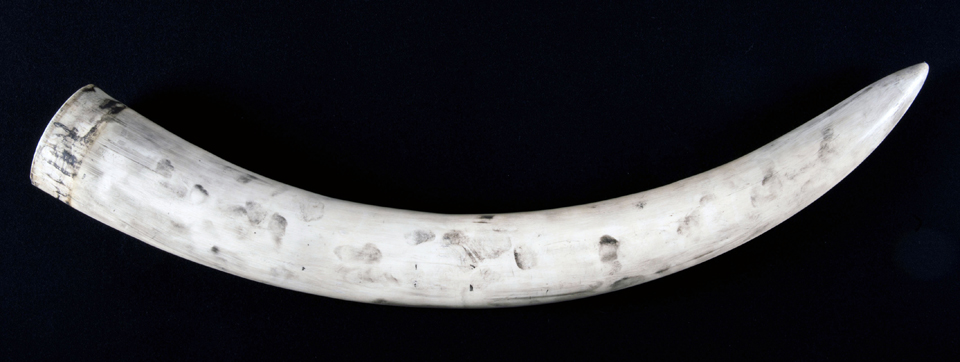Police fingerprint science first set to identify wildlife poachers
Police in Britain have helped mastermind a forensic breakthrough that is set to transform law enforcement investigations against poachers and smugglers around the world.
Police in Britain have helped mastermind a forensic breakthrough that is set to transform law enforcement investigations against poachers and smugglers around the world.
Imaging and fingerprint experts from the Metropolitan Police Service (MPS) have teamed up with scientists from King`s College London and University College London to validate the use of new techniques for retrieving fingerprints from elephant tusks for the first time.
Around 50,000 African elephants are thought to be poached each year, but it had been thought almost impossible to retrieve fingerprints from ivory because of its ridges and porous surface, making it difficult for wildlife police to develop the level of detail required for an accurate identification to prosecute.
The new research, which is documented in the Science & Justice journal, could lead to wider use of fingerprinting methods in the field to more easily identify poachers in regions with high levels of ivory-related crime.
The study tested three new types of powder on elephant tusks loaned by the MPS wildlife unit. It found that newer powders are composed of smaller particles, and in turn they adhere better to smaller amounts of fingermark residue left behind allowing scientists a better chance to identify fingerprints.
This is the first time that fingerprinting on ivory has been thoroughly investigated and a practical solution offered, said Dr Leon Barron, a lecturer in forensic science at Kings College London.
The only other study carried out over a decade ago simply showed that fingerprints were unstable and that the clarity of ridge detail was low, making it difficult to make reliable identifications.
The researchers found that the methods work best within seven days of a fingerprint being deposited, though some information can still be retrieved for up to 28 days.
The relatively short seven-day peak window for fingerprint collection means the method is best used right in the regions where the poaching is taking place. As Dr Barron said, the new powders are especially suited to rangers working in the field.
Gary Pugh, the director of forensic services at the MPS, said: The concept for this work was originally devised by an imaging expert based on his experience at crime scenes.
The equipment required to put this form of fingerprinting into practice is inexpensive and relatively easy to procure, making it a cost-effective forensic tool to combat wildlife crime.
The fingerprinting breakthrough couldnt come at a better time, given that poaching of elephants is reaching epidemic proportions.
More than 100,000 elephants were killed from 2010 to 2012 almost 100 each day to supply the insatiable appetite from China`s growing middle class and markets elsewhere in Asia for all things ivory.
Earlier this year, the New York City-based Wildlife Conservation Society announced that Mozambique`s elephant population dropped from just over 20,000 to about 10,300 during a five-year period.
The trade in ivory was banned in 1989 by international agreement, but a black market continues to thrive; with an estimated population of less than half a million animals in the wild, the ongoing African poaching problem is rapidly driving the species towards extinction.
Earlier this year scientists were able to use DNA testing on ivory for the first time to locate the poaching hotspots. They found that most illegally poached ivory can be traced back to just two areas of Africa; Tanzania and nearby parts of Mozambique.
And there has been another bit of good news in the poaching wars over the last few days too. CNN is reporting that for the second time in a month, authorities in Tanzania have arrested a kingpin in the ivory smuggling trade.
Boniface Matthew Mariango, 45, who has been called Shetani or The Devil, was taken into custody in the countrys capital, Dar es Salaam, after a year-long manhunt.


